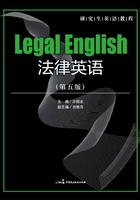
Ⅷ. Case discussion.
Tull v.United States
22 III.481 U.S.412,107 S. Ct.1831(1987)
BRENNAN, J. , delivered the opinion of the Court.
The question for decision is whether the Seventh Amendment guaranteed petitioner a right to a jury trial on both liability and amount of penalty in an action instituted by the Federal Government seeking civil penalties and injunctive relief under the Clean Water Act,62 Stat.1 155, as amended,33 U.S. C. §125 1 et seq.
The Clean Water Act prohibits discharging, without a permit, dredged or fill material into“navigable waters, ”including the wetlands adjacent to the waters. The Government sued petitioner, a real estate developer, for dumping fill on wetlands in Virginia in violation of the Act. The Government alleged in the original complaint that petitioner dumped fill on three sites and a waterway.
Section 1319 enumerates the remedies available under the Clean Water Act. Subsection (b)authorizes relief in the form of temporary or permanent injunctions. Subsection(d) provides that violators of certain sections of the Act“shall be subject to a civil penalty not to exceed$10,000 per day”during the period of the violation. The Government sought in this case both injunctive relief and civil penalties. When the complaint was filed, however, almost all of the property at issue had been sold by petitioner to third parties. Injunctive relief was therefore impractical except with regard to a small portion of the land. The Government's complaint demanded the imposition of the maximum civil penalty of$22,890,000 under subsection(d).
The District Court denied Petitioner's request for a jury trial and found for the Government, though drastically reduced the amount of the civil penalties. The Court of Appeals affirmed on the issue of Petitioner's right to a trial by jury.
To resolve this question and the conflict between Circuits, we granted certiorari. We reverse.
The Seventh Amendment provides that, “in Suits at common law, where the value in controversy shall exceed twenty dollars, the right of trial by jury shall be preserved...”The Court has construed this language to require a jury trial on the merits in those actions that are analogous to“Suits at common law. ”...In contrast, those actions that are analogous to 18th-century cases tried in courts of equity or admiralty do not require a jury trial. This analysis applies not only to common-law forms of action, but also to causes of action created by congressional enactment.
To determine whether a statutory action is more similar to cases that were tried in courts of law than to suits tried in courts of equity or admiralty, the Court must examine both the nature of the action and of the remedy sought.
If a legal claim is joined with an equitable claim, the right to a jury trial on the legal claim, including all the issues common to both claims remains intact and the right cannot be abridged by characterizing the legal claim as“incidental”to the equitable relief sought. Thus, the Petitioner had a right to a jury trial to determine his liability on the legal issues.
A civil penalty was a type of remedy at common law that could only be enforced in courts of law. Remedies intended to punish culpable individuals, as opposed to those intended simply to extract compensation or restore the status quo, were issued by courts of law, not courts of equity.
The legislative history of the Act reveals that Congress wanted the district court to consider the need for retribution and deterrence, in addition to restitution, when it imposed civil penalties.
The Seventh Amendment is silent on the question whether a jury must determine the remedy in a trial in which it must determine liability. The answer must depend on whether the jury must shoulder this responsibility as necessary to preserve the“substance of the common-law right of trial by jury. ”Is a jury role necessary for that purpose? We do not think so. Only those incidents which are regarded as fundamental, as inherent in and of the essence of the system of trial by jury, are placed beyond the reach of the legislature...The assessment of a civil penalty is not one of the“most fundamental elements. ”Congress'authority to fix the penalty by statute has not been questioned.
Congress'assignment of the determination of the amount of civil penalties to trial judges therefore does not infringe on the constitutional right to a jury trial. Since Congress itself may fix the civil penalties, it may delegate that determination to trial judges. In this case, highly discretionary calculations that take into account multiple factors are necessary in order to set civil penalties under the Clean Water Act. These are the kinds of calculations traditionally performed by judges. We therefore hold that a 18 determination of a civil penalty is not an essential function of a jury trial, and that the Seventh Amendment does not require a jury trial for that purpose in a civil action.
We conclude that the Seventh Amendment required that petitioner's demand for a jury trial be granted to determine his liability, but that the trial court and not the jury should determine the amount of penalty, if any. The judgment of the Court of Appeals is therefore reversed, and the case is remanded for further proceedings consistent with this opinion.
Questions:
1. Which party wins the suit in the lower courts?
2. What is the issue of the case before the U.S. Supreme Court?
3. Why does the Supreme Court reverse the lower court's decision?
4. Does the Seventh Amendment guarantee Petitioner a right to a jury trial on both liability and amount of penalty in an action instituted by the Federal Government seeking civil penalties and injunctive relief under the Act?
5. How does the Court decide the case? How does it reason?